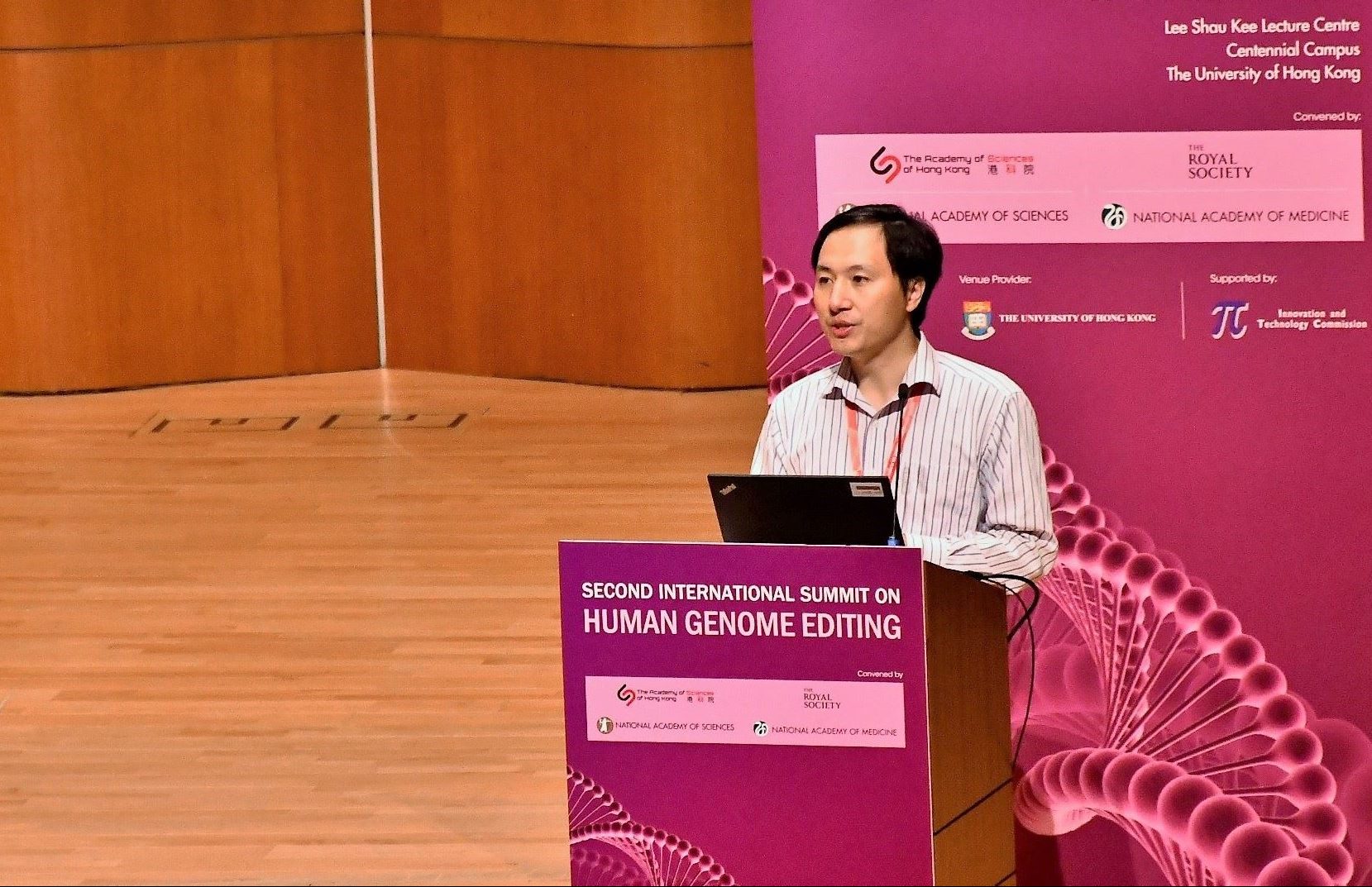
Lauren Dempsey, MS in Biomedicine and Law, RN, FISM News
[elfsight_social_share_buttons id=”1″]
Scientists and bioethicists were left frustrated and confused after a bioethics event where Dr. He Jiankui, the disgraced Chinese biophysicist, was meant to speak about using genome editing technology in humans.
Jiankui shocked the scientific community and the world in 2018 when it was revealed that he had created the first children with edited genomes, an act that he spent three years in jail for and earned him global condemnation.
The event, which was hosted by the University of Kent in Canterbury, England, was meant to be a discussion between scientists and researchers about complex ethical issues of CRISPR research, responsible research, and policy debates.
Jiankui was scheduled to speak for 40 minutes on his research plans and his thoughts on how bioethical governance can be improved in China. However, Jiankui gave a 25-minute presentation in which he discussed future plans to develop a gene-editing medication for people living with Duchenne Muscular Dystrophy (DMD), which is a genetic disorder characterized by progressive muscle degeneration and weakness.
Jiankui spent most of his talk describing the basics of genome editing technology and its many uses and wrapped up the presentation by saying that “scientific research must be subject to constraints of ethics and morality.” He avoided discussing or answering any questions about his past work leaving many at the event feeling discouraged by Jiankui’s lack of transparency about past research.
‘PUBLICITY STUNT’
Eben Kirksey, a medical anthropologist at the University of Oxford said, “A publicity stunt like today shows he doesn’t have much credibility at least in the eyes of his peers.”
Joy Zhang, a sociologist at the University of Kent in Canterbury and one of the event organizers said Jiankui’s presentation and refusal to answer questions shows that he has not considered the consequences of his research, adding, “We don’t want another scandal where desperate patients will be exploited for ventures on experimental or even illegal therapies.”
Françoise Baylis, a bioethicist and professor emerita at Dalhousie University in Nova Scotia, Canada, said, “It bordered on being insulting to the conference organizers and the participants to have used up the time with details and information that were not relevant.”
CONDEMNED HIV EXPERIMENTS
For his 2018 experiment, Jiankui recruited seven couples where the men all had HIV, while the women did not. The embryos were then made in an IVF clinic and Jiankui used CRISPR-Cas9 to modify a gene called CCR5 in two embryos that were then implanted into two of the study participants. Jiankui’s goal was to create children that were resistant to HIV.
CCR5 is essential to the immune system and while removing it can weaken the immune system, it also can give people resistance to HIV. Jiankui’s experiments resulted in the first genetically modified children, however, the long-term consequences are yet to be seen.
A 2020 report from an international commission of the U.S. National Academy of Medicine, U.S. National Academy of Sciences, and the U.K.’s Royal Society, details the implications associated with genome editing technologies and preclinical and clinical requirements for establishing safety and efficacy, and for undertaking long-term monitoring of outcomes.
Germline gene editing is controversial because the changes occur in every cell and will be passed on to future offspring and the impact of deleting genes on future generations is completely unknown. However, gene editing is already widely used in nonviable embryos, for some medical conditions, and in agriculture.
